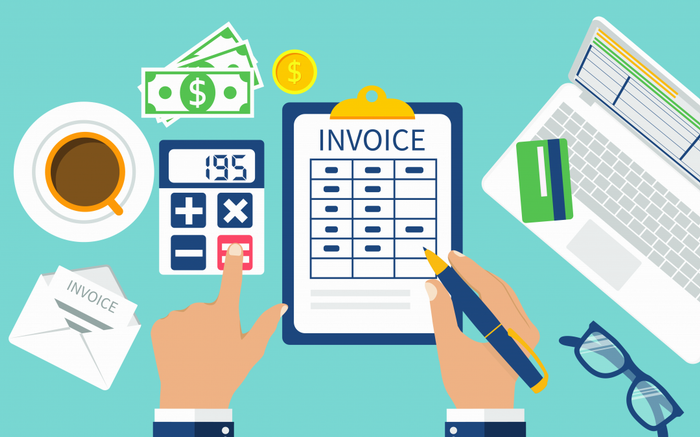Invoice financing is a great way for businesses to get the cash they need to cover their short-term expenses. It’s a form of short-term borrowing that allows businesses to access the money they are owed from customers quickly and easily. With invoice financing, businesses can get the funds they need to cover payroll, purchase inventory, and other expenses without having to wait for their customers to pay. This article will provide an overview of invoice financing and what businesses need to know about it. We’ll cover the basics of invoice financing, the benefits it offers, and the potential risks associated with it. By the end of this article, you’ll have a better understanding of invoice financing and how it can help your business.
Understanding the Basics of Invoice Financing
Invoice financing is a form of business financing that enables businesses to access working capital by leveraging their outstanding invoices. It is a great way for businesses to improve their cash flow and fund growth without taking on additional debt.
Invoice financing is a relatively simple process. The business sells its invoices to a third-party lender at a discounted rate. The lender then pays the business a percentage of the invoice amount upfront, usually within 24 hours. The business is then responsible for collecting the full amount from the customer. Once the customer pays the invoice, the lender will pay the remaining balance minus any fees.
Invoice financing is a great option for businesses that have customers with long payment terms or those that need to access capital quickly. It is also a great way to free up cash flow for businesses that are growing quickly and need to invest in new equipment or hire additional staff.
When considering invoice financing, it is important to understand the fees associated with the process. Most lenders will charge a fee for each invoice that is financed, as well as a percentage of the invoice amount. It is important to compare fees between lenders to ensure that you are getting the best deal.
It is also important to understand the terms of the agreement. Most lenders will require that the business have a certain amount of outstanding invoices before they will approve the financing. Additionally, the lender may require that the business have a certain credit score or that the invoices be insured.
Invoice financing is a great way for businesses to access capital quickly and improve their cash flow. It is important to understand the fees and terms associated with the process before committing to a lender. By doing so, businesses can ensure that they are getting the best deal and that they are able to access the capital they need to grow their business.
Benefits of Invoice Financing for Your Business
Invoice financing is a type of business financing that allows companies to access working capital quickly and easily. It is a great option for businesses that need to bridge the gap between invoicing and payment, as it provides a way to get cash quickly without taking on additional debt. Here are some of the key benefits of invoice financing for your business:
1. Improved Cash Flow: Invoice financing helps to improve cash flow by providing access to working capital quickly and easily. This can be especially beneficial for businesses that are waiting on customer payments, as it allows them to access the money they are owed without having to wait for customers to pay.
2. Flexible Repayment Terms: Invoice financing is a flexible form of financing, as repayment terms are based on the amount of invoices that are outstanding. This means that businesses can adjust their repayment terms to suit their cash flow needs.
3. Increased Profitability: Invoice financing can help businesses to increase their profitability by providing access to working capital quickly and easily. This can help businesses to take advantage of new opportunities, invest in new equipment, or expand their operations.
4. Reduced Risk: Invoice financing can help to reduce the risk of non-payment, as it provides businesses with access to working capital even if customers do not pay on time. This can help businesses to manage their cash flow more effectively and reduce the risk of non-payment.
Invoice financing is a great option for businesses that need to bridge the gap between invoicing and payment. It provides access to working capital quickly and easily, and offers flexible repayment terms. Additionally, it can help businesses to increase their profitability and reduce the risk of non-payment. For these reasons, invoice financing can be a great option for businesses looking to access working capital quickly and easily.
How to Qualify for Invoice Financing
Invoice financing is a great way for businesses to access the working capital they need to grow and succeed. It is a type of short-term financing that allows businesses to use their unpaid invoices as collateral to secure a loan. This loan can then be used to cover operating expenses, purchase inventory, or invest in other areas of the business.
In order to qualify for invoice financing, businesses must meet certain criteria. First, businesses must have a consistent and reliable customer base that pays their invoices on time. This means that businesses must have a history of invoices that have been paid in full and on time. Second, businesses must have a good credit rating. This means that businesses must have a good track record of paying their bills on time and not having any major financial issues. Finally, businesses must have a minimum amount of outstanding invoices. This amount will vary depending on the lender, but it is typically around $10,000.
In addition to meeting the criteria mentioned above, businesses must also provide the lender with a few documents. These documents include financial statements, tax returns, and a list of outstanding invoices. The lender will use these documents to assess the business’s creditworthiness and determine if they are a good candidate for invoice financing.
Invoice financing can be a great way for businesses to access the working capital they need to grow and succeed. However, it is important for businesses to understand the criteria and documents required in order to qualify for invoice financing. By meeting these criteria and providing the necessary documents, businesses can increase their chances of being approved for invoice financing and accessing the working capital they need.
Evaluating the Costs of Invoice Financing
Evaluating the costs of invoice financing is an important step for any business looking to take advantage of this type of financing. Invoice financing is a type of financing that allows businesses to access cash quickly by selling their outstanding invoices to a third-party lender. This type of financing can be a great way to access the cash needed to cover expenses, purchase inventory, or invest in growth opportunities.
When evaluating the costs of invoice financing, it is important to consider the fees associated with the financing. The fees associated with invoice financing can vary depending on the lender and the terms of the financing. Generally, the fees associated with invoice financing include a financing fee, a discount fee, and a collection fee. The financing fee is the cost of borrowing the money, the discount fee is the cost of the lender’s service, and the collection fee is the cost of collecting the invoice payments from the customer.
In addition to the fees associated with invoice financing, it is important to consider the interest rate associated with the financing. The interest rate will vary depending on the lender and the terms of the financing. Generally, the interest rate will be higher than traditional financing, but it can still be a cost-effective way to access the cash needed to cover expenses.
Finally, it is important to consider the repayment terms associated with invoice financing. Generally, the repayment terms will be based on the terms of the invoice, meaning that the repayment terms will be based on when the customer pays the invoice. It is important to understand the repayment terms associated with the financing in order to ensure that the business can afford to make the payments on time.
Evaluating the costs of invoice financing is an important step for any business looking to take advantage of this type of financing. Understanding the fees, interest rate, and repayment terms associated with the financing is essential in order to ensure that the financing is cost-effective and meets the needs of the business.
Maximizing the Impact of Invoice Financing on Your Business
Invoice financing is a great way to maximize the impact of your business. It is a form of short-term financing that allows businesses to access funds quickly and easily, without having to wait for customers to pay their invoices. By taking advantage of invoice financing, businesses can free up capital to invest in growth and operations, helping them to reach their goals faster.
Invoice financing is a great way to improve cash flow and increase working capital. By leveraging the value of your invoices, you can access funds quickly and easily, allowing you to pay for supplies, hire new staff, or invest in marketing. This can help you grow your business faster and increase your profits.
Invoice financing also helps you manage risk. By taking out a loan against your invoices, you can reduce the risk of late payments and bad debt. This can help you protect your business from financial losses and ensure that you have the funds you need to keep your business running smoothly.
In addition, invoice financing can help you improve your relationships with customers. By offering them financing options, you can make it easier for them to pay their invoices on time. This can help you build trust and loyalty with your customers, making them more likely to continue doing business with you.
Finally, invoice financing can help you increase your profits. By accessing funds quickly and easily, you can reduce the amount of time it takes to get paid. This can help you increase your sales and profits, allowing you to reach your goals faster.
Overall, invoice financing is a great way to maximize the impact of your business. By leveraging the value of your invoices, you can access funds quickly and easily, helping you to grow your business faster and increase your profits. With the right invoice financing partner, you can take advantage of all the benefits of invoice financing and ensure that your business is successful.
FAQs
1. What is invoice financing? Invoice financing, also known as accounts receivable financing, is a financial solution that allows businesses to access funds by using their outstanding invoices as collateral. Instead of waiting for customers to pay their invoices, businesses can sell these invoices to a third-party financial institution or a factoring company, which then provides an immediate advance on the invoice amount.
2. How does invoice financing work? The process of invoice financing typically involves the following steps:
- A business provides goods or services to its customers and generates an invoice.
- Instead of waiting for the customer to pay, the business sells the invoice to an invoice financing provider.
- The invoice financing provider verifies the invoice and advances a certain percentage of the invoice value, usually ranging from 70% to 90%.
- The business receives the immediate funds and can use them for working capital, growth, or other operational needs.
- The customer pays the invoice directly to the invoice financing provider.
- The invoice financing provider deducts their fees and releases the remaining amount, known as the reserve, to the business.
3. What are the benefits of invoice financing? Invoice financing offers several advantages for businesses, including:
- Improved cash flow: Businesses can access funds quickly instead of waiting for invoice payments, enabling them to cover expenses, pay employees, and invest in growth opportunities.
- Flexible financing: The amount of funding available through invoice financing grows in line with the business’s sales and invoices, making it a scalable solution.
- Reduced risk of bad debts: By selling invoices to a financing provider, businesses transfer the risk of non-payment to the provider, who often performs credit checks on customers before approving the financing.
- Faster business growth: With immediate access to funds, businesses can take advantage of growth opportunities, such as purchasing inventory, expanding operations, or investing in marketing and sales efforts.
4. Is invoice financing suitable for my business? Invoice financing is generally suitable for businesses that operate on a business-to-business (B2B) model and issue invoices with payment terms. It can be beneficial for small to medium-sized enterprises (SMEs) that face cash flow gaps due to extended payment cycles. However, the applicability of invoice financing depends on various factors, including your industry, customer creditworthiness, invoice volume, and business goals. It is advisable to consult with an invoice financing provider or financial advisor to assess if it aligns with your specific business needs.
5. How are fees and interest calculated in invoice financing? Invoice financing providers typically charge two types of fees: a discount fee (or discount rate) and a service fee. The discount fee is a percentage of the invoice value that is deducted upfront by the financing provider. It usually ranges from 1% to 5% per month based on the risk associated with the invoice and the creditworthiness of the customer. The service fee is a fixed monthly fee that covers the administrative costs and ongoing management of the financing facility. It is typically charged as a percentage of the total invoice value.
6. Is invoice financing the same as factoring? Invoice financing and factoring are similar in concept but have some differences. While both involve using invoices to access immediate funds, factoring usually involves selling the entire accounts receivable ledger to the factoring company, which then assumes the responsibility for collecting payments from customers. In contrast, invoice financing allows businesses to select specific invoices to finance while retaining the responsibility for collecting payments. Factoring may provide additional services such as credit control and collections management, but it generally has higher fees compared to invoice financing.
7. Can my business still use invoice financing if we have bad credit or a new business? Invoice financing can be an accessible financing option even if your business has bad credit or is a new venture. Unlike traditional bank loans that heavily rely on credit scores and business history, invoice financing providers primarily assess the creditworthiness of your customers rather than your business. As long as your customers have a good payment track record, you can still qualify for invoice financing. This makes it a viable option for businesses with limited credit history or facing credit challenges.
8. How long does it take to receive funds through invoice financing? The time it takes to receive funds through invoice financing can vary depending on the invoice financing provider and their processes. Generally, once you submit your invoices for financing and they are approved, you can expect to receive an advance within 24 to 48 hours. Some invoice financing providers may offer expedited funding options for an additional fee. It’s essential to discuss the funding timeline with the provider before entering into an agreement.
9. What happens if my customer fails to pay the invoice? In invoice financing, the risk of non-payment is typically transferred to the invoice financing provider. If your customer fails to pay the invoice, it becomes the responsibility of the financing provider to pursue the payment. However, it’s important to note that the terms and conditions may vary between different invoice financing agreements. Some providers offer non-recourse financing, which means they absorb the loss if the customer defaults. Others may provide recourse financing, where you might be required to buy back the unpaid invoice or replace it with another invoice. Make sure to clarify the recourse policy with your invoice financing provider.
10. Can I use invoice financing for all types of invoices? Invoice financing is commonly used for business-to-business (B2B) invoices where there is a payment term agreed upon. Invoices that meet the criteria, such as being due within a specified period (e.g., 90 days or less) and are not under dispute, are generally eligible for financing. However, certain types of invoices, such as invoices from individuals or government entities, may not be suitable for invoice financing. It’s recommended to discuss the eligibility of your specific invoices with the invoice financing provider.
11. Does invoice financing impact my relationship with customers? Invoice financing should not have a negative impact on your relationship with customers. The financing provider operates independently and does not typically disclose the financing arrangement to your customers unless required. They handle the payment collection process professionally, ensuring a seamless experience for your customers. It’s always a good practice to communicate with your customers about any changes in payment instructions or processes to maintain transparency.
12. Can I use invoice financing if I already have a line of credit or other financing arrangements? In many cases, you can still utilize invoice financing even if you have existing financing arrangements such as a line of credit. Invoice financing is considered a separate form of financing that is based on your accounts receivable. It complements your existing funding sources and provides an additional avenue to improve your cash flow. However, it’s important to review your current financing agreements and consult with your existing lenders to ensure there are no restrictions or conflicts.
13. How do I choose the right invoice financing provider for my business? When selecting an invoice financing provider, consider the following factors:
- Reputation and experience: Choose a reputable provider with a proven track record in the industry.
- Terms and fees: Compare the discount rates, service fees, and any additional charges among different providers.
- Customer support: Evaluate the quality of customer service and responsiveness of the provider.
- Flexibility: Assess if the provider offers flexible financing options that align with your business needs.
- Technology and convenience: Look for providers with user-friendly online platforms or mobile apps that simplify the application and funding process.
- Transparency: Ensure the provider is transparent about their terms, fees, and policies, and clearly explains the entire financing process.
- Industry expertise: Consider providers that have experience working with businesses in your specific industry, as they may better understand your unique challenges and requirements.
- References and reviews: Seek recommendations from other businesses or colleagues who have used invoice financing and read online reviews to gain insights into the provider’s reputation and customer satisfaction.




